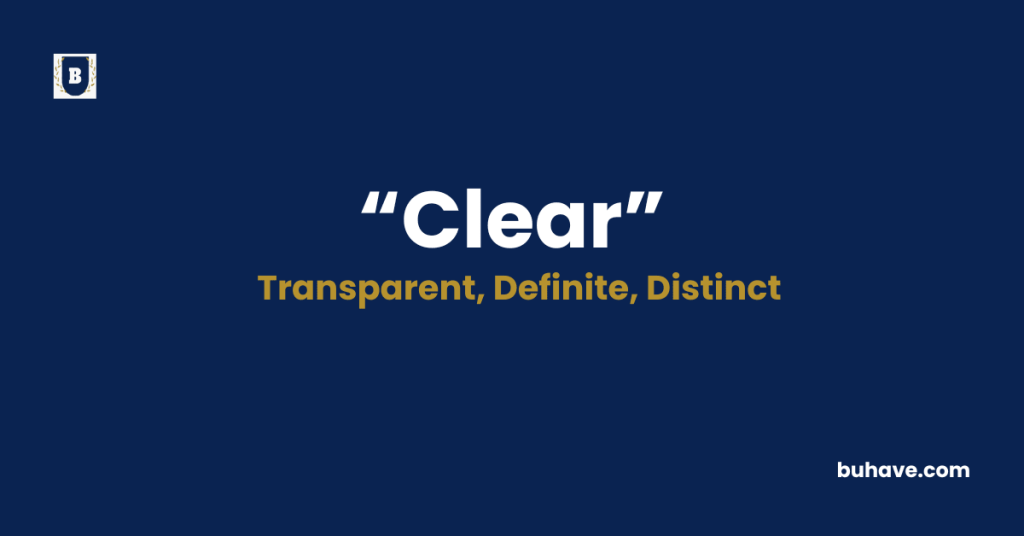The word clear (Adjective) describes something that is easy to perceive, understand, or free from obstruction or confusion. In this guide, you’ll learn the full definition, synonyms, antonyms, etymology, and real-life examples of how to use clear correctly in sentences.
Clear Explained in Depth
A complete and detailed guide to the word clear, including meaning, definition, examples, etymology, synonyms, and antonyms.
Meanings of Clear
Clear means easy to see, hear, or understand. It can refer to transparency (like clear water), comprehension (a clear explanation), or freedom from obstruction or doubt (a clear path, a clear mind).
Definition
Clear refers to something that is not cloudy or obscured, is easy to understand, or is unambiguous in meaning or presence. It can also imply innocence or freedom from guilt, such as being cleared of accusations. The term is versatile and used in both literal and figurative contexts—from weather to communication, legal situations, and physical vision.
Etymology
The word clear comes from the Old French cler, from Latin clarus, meaning “bright, clear, or illustrious.” It has been used in English since the Middle Ages to describe brightness, openness, and freedom from obstruction or confusion. Over time, its meanings expanded to include clarity in thought, speech, judgment, and vision.
Example Sentences
- The sky was so clear that you could see every star.
- She gave a clear explanation of the procedure.
- The judge declared him clear of all charges.
Clear Synonyms
- Transparent
- Lucid
- Unambiguous
- Understandable
- Obvious
- Plain
- Apparent
- Innocent
- Evident
- Distinct
Clear Antonyms
- Unclear
- Confusing
- Opaque
- Vague
- Ambiguous
- Obstructed
- Blurred
- Doubtful
- Hidden
- Guilty
FAQs about Clear
Here are some FAQs (Frequently Asked Questions) about the word “Clear”
1. What does “clear” mean?
It means easy to understand, free from obstruction, or transparent depending on context.
2. Can “clear” be used to describe a person?
Yes, it can describe someone who is free from blame or who communicates in an understandable way.
3. Is “clear” only used for vision?
No, it’s used for thought, speech, legal matters, weather, and more.
4. What does “clear of charges” mean?
It means legally declared innocent or not responsible for a crime.
5. How is “clear” different from “transparent”?
“Transparent” usually refers to physical see-through quality, while “clear” is broader and includes understanding, speech, and guilt.

















